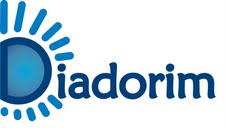A DESIGUALDADE SOCIAL E SUAS INFLUÊNCIAS NO CRESCIMENTO DOS ATOS INFRACIONAIS
Resumo
O objetivo deste trabalho é analisar a desigualdade social e sua influência no crescimento dos atos infracionais cometidos por adolescentes no Brasil, bem como apresentar a necessidade de políticas públicas no combate às desigualdades. Foi realizado um estudo por meio de análises bibliográficas e documentais. Restou-se demonstrado através desta pesquisa, que a desigualdade social possui relevante influência no alto índice de cometimento de ato infracional no Brasil, uma vez que o perfil da maioria dos adolescentes infratores é de um jovem sem acesso as políticas públicas que deveriam ser promovidas pelo Estado para assegurar os direitos à saúde, educação, lazer e profissionalização, dentre outros; ocupante da classe baixa e desfavorecida da sociedade; sem qualquer perspectiva de mudança e melhora do nível social pelo meio lícito, já que no ambiente em que vivem, os poderosos são os praticantes de atos ilícitos que de alguma forma proporcionam uma sensação de prazer e poder. Sendo assim, entende-se que o meio mais eficiente para diminuir os índices de atos infracionais no Brasil seria a implementação de políticas públicas que efetivassem os direitos fundamentais previstos na Constituição da República Federativa do Brasil de 1988, e respeitassem assim o princípio da dignidade da pessoa humana.
Palavras-chave: Desigualdade Social; Ato Infracional; Medidas socioeducativas: Sociedade.
The objective of this paper is to analyze social inequality and its influence on the growth of the infractions committed by adolescents in Brazil, as well as to present the need for public policies to combat inequalities. A study was conducted through bibliographical and documentary analysis. It was demonstrated through this research that social inequality has a relevant influence on the high rate of committing an offense in Brazil, since the profile of the majority of adolescent offenders is a young person without access to public policies that should be promoted by State to ensure the rights to health, education, leisure and professionalization, among others; occupant of the lower and disadvantaged class of society; without any prospect of change and improvement of the social level by the lawful means, since in the environment in which they live, the powerful are the practitioners of illicit acts that somehow provide a sense of pleasure and power. Thus, it is understood that the most efficient way to reduce the rates of infringement in Brazil would be the implementation of public policies that enforce the fundamental rights provided
for in the Constitution of the Federative Republic of Brazil of 1988, and thus respect the principle of the dignity of human person.
Keywords: Social Inequality; Infractional Act; Socio-educational measures: Society.
Texto completo:
PDFApontamentos
- Não há apontamentos.

This work is licensed under a Creative Commons Attribution 3.0 License.
Indexadores:

